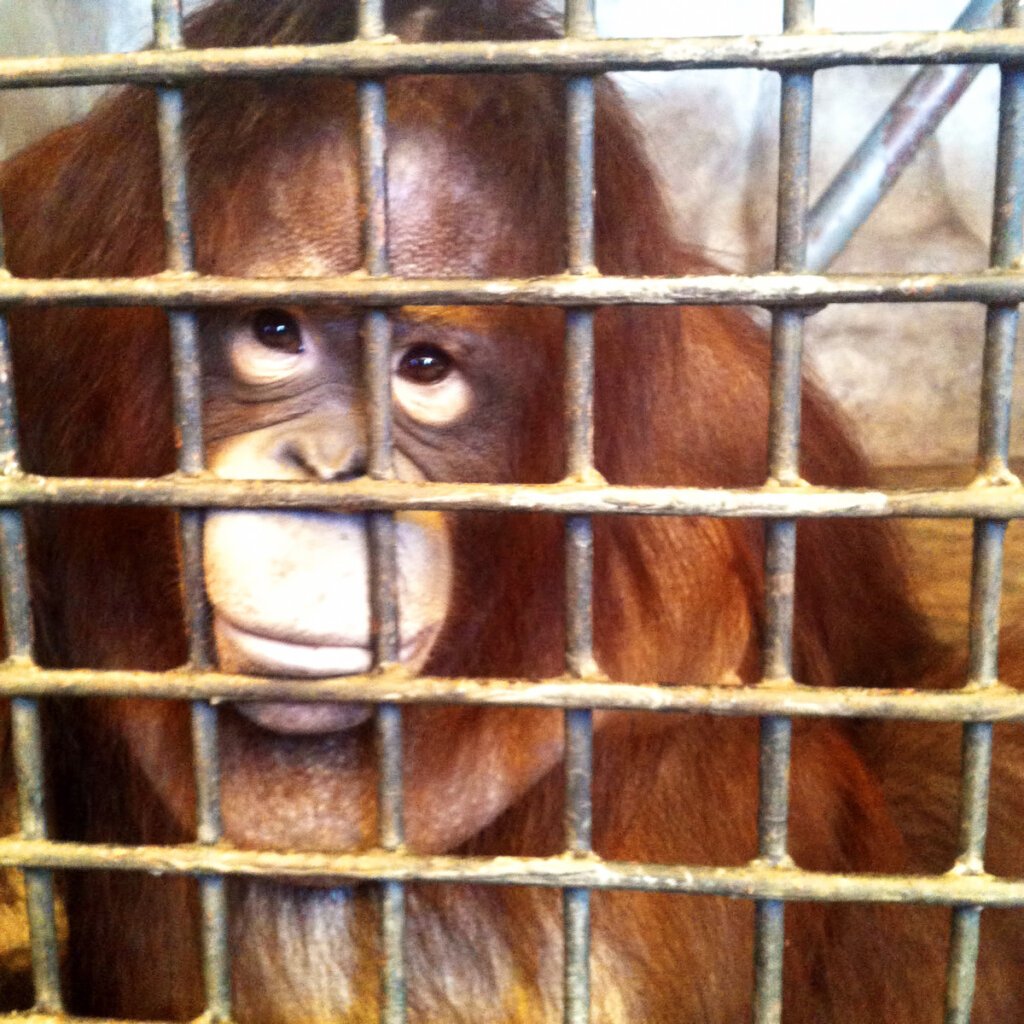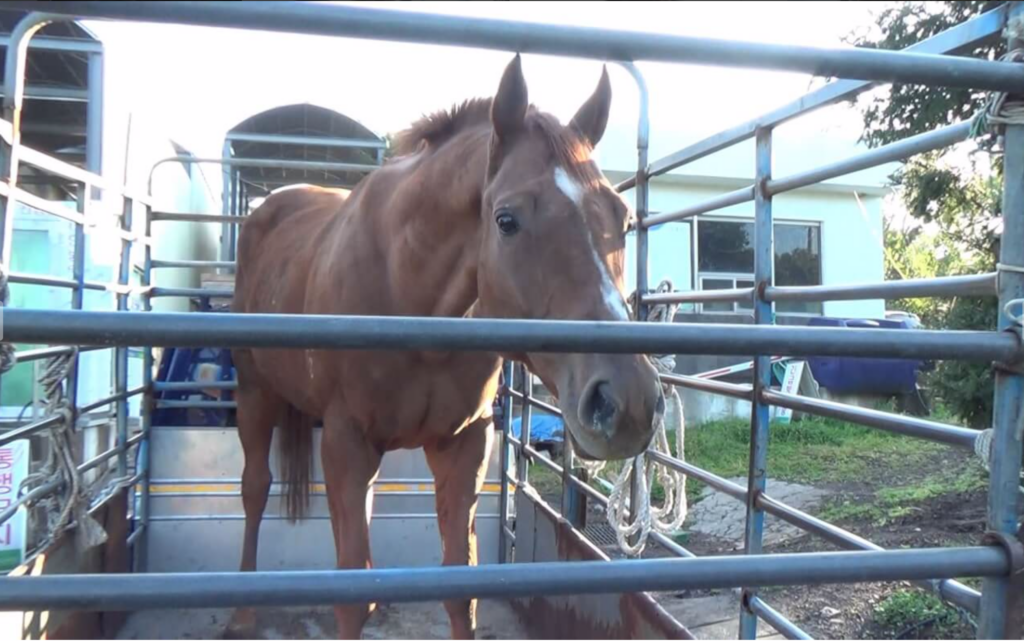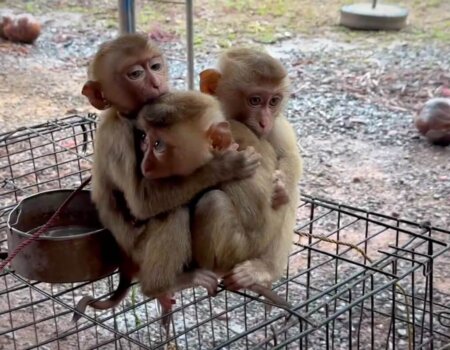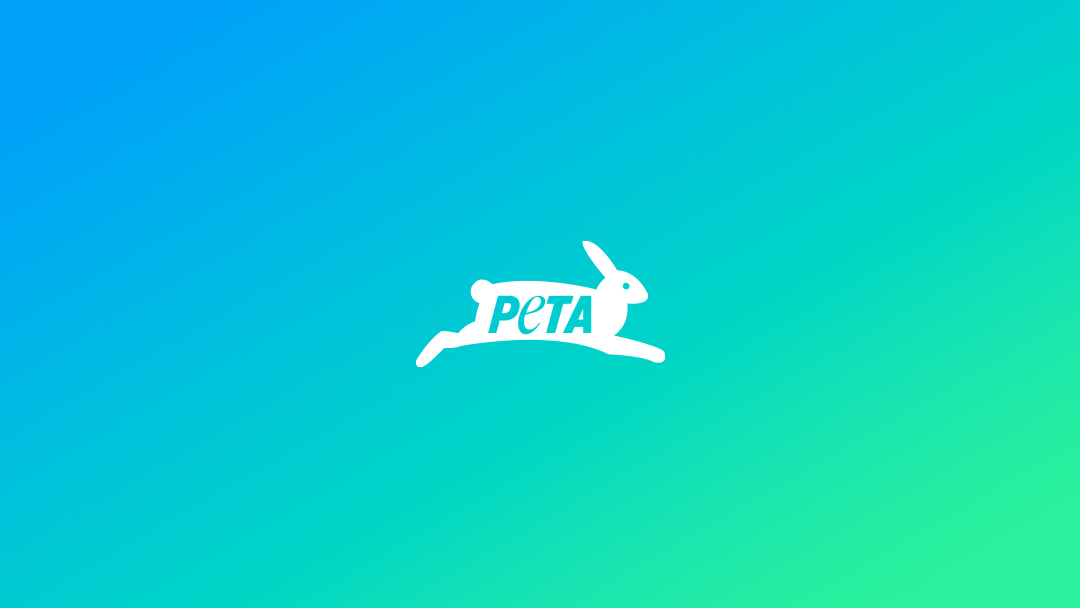
Update: South Korea’s Largest Horse Slaughterhouse and Two Employees Fined for Illegal Killing Methods Following PETA Exposé
After a police investigation—prompted by the release of PETA’s video exposé showing shocking abuse and slaughter of horses in South Korea—the Jeju Livestock Cooperative Association and two of its employees have been fined KRW 5 million (approximately AUD $6266) each for killing horses right in front of other horses. This is the first time that a South Korean company or its workers have been prosecuted for illegally killing horses. Jeju Livestock Cooperative Association operates the largest horse slaughterhouse in Korea, owned by the national corporation Nonghyup Bank.
However, the workers and horse transporters who were filmed viciously beating horses in the face were not prosecuted. The workers and drivers who beat the horses and the Jeju Livestock Cooperative Association, which permitted such routine abuse to occur, need to be held accountable and receive similar penalties—otherwise, workers will continue to treat horses cruelly. PETA U.S. and Voice For Animals will be submitting an appeal of dissatisfaction.
Originally published on September 12, 2019:
After a police investigation prompted by video footage released by PETA showing widespread abuse and slaughter of horses– including Australian racehorses sold to the South Korean racing industry – three people at the Nonghyup abattoir in Jeju have been charged, along with the company itself.
PETA’s exposé shows castoffs from the racing industry and other horses beaten repeatedly in the face as they’re forced into the abattoir and killed for their flesh.
The Jeju police have charged the Jeju Livestock Cooperative Association and three of its workers for slaughtering horses in front of other horses – a direct violation of South Korea’s Animal Protection Act.
Jeju Livestock Cooperative Association runs the biggest abattoir in South Korea, owned by the huge national corporation Nonghyup.
No charges have been filed for the beatings that were captured on film at the facility, an issue which PETA US and other organisations have taken up with police.
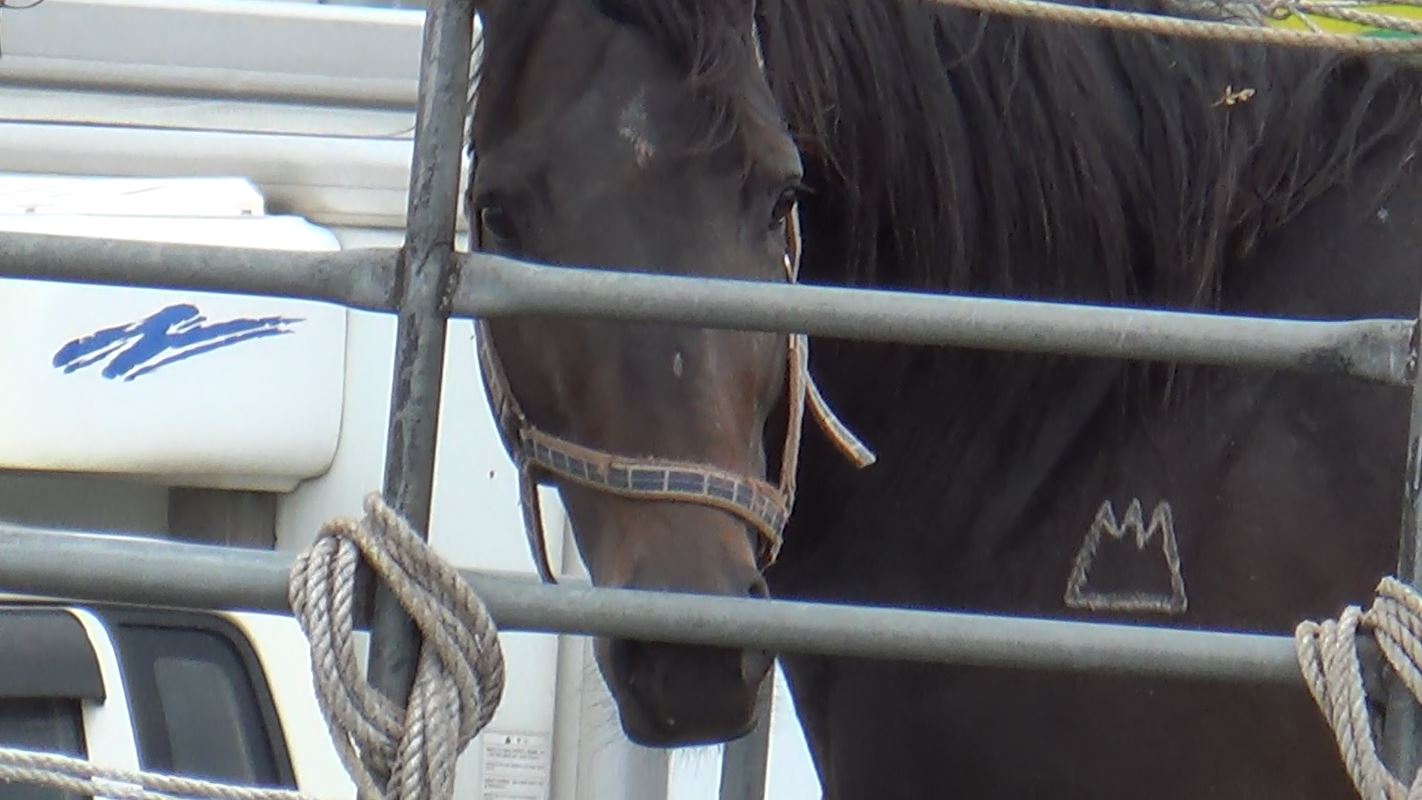
Beating and slaughtering horses in plain view of each other are unquestionably forms of violent abuse which must be met with maximum penalties under the Animal Protection Act.
These charges should also be a wakeup call to all those involved in horseracing in South Korea and Australia. While horses continue to be bred for human entertainment and profit, many will end up hanging by one leg in abattoirs like Nonghyup.
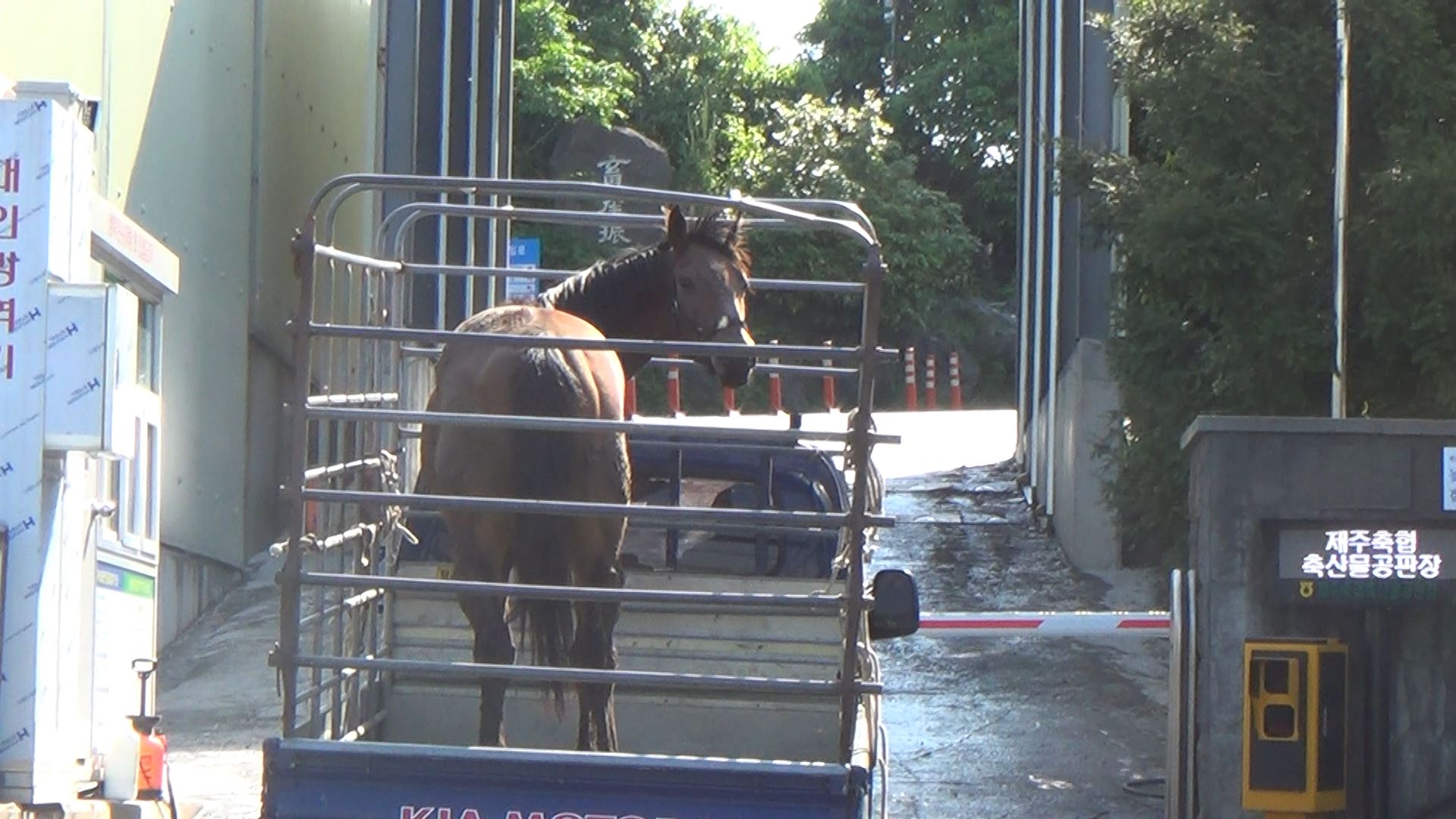
Meanwhile, the slaughter of Australian horses continues.
Newly obtained records show that two more Australian-bred horses were slaughtered for meat in South Korea this spring, including After Eight, a 17-year-old broodmare who had six foals – five of whom are also now dead. Eleven other horses slaughtered in the second quarter of 2019 had at least one Australian parent.
This abuse and slaughter will only end when people who care about animals join us and demand that the Korea Racing Authority implement a comprehensive retirement plan for unwanted horses in South Korea.
Help Animals in 2025: Renew Your PETA Membership!
